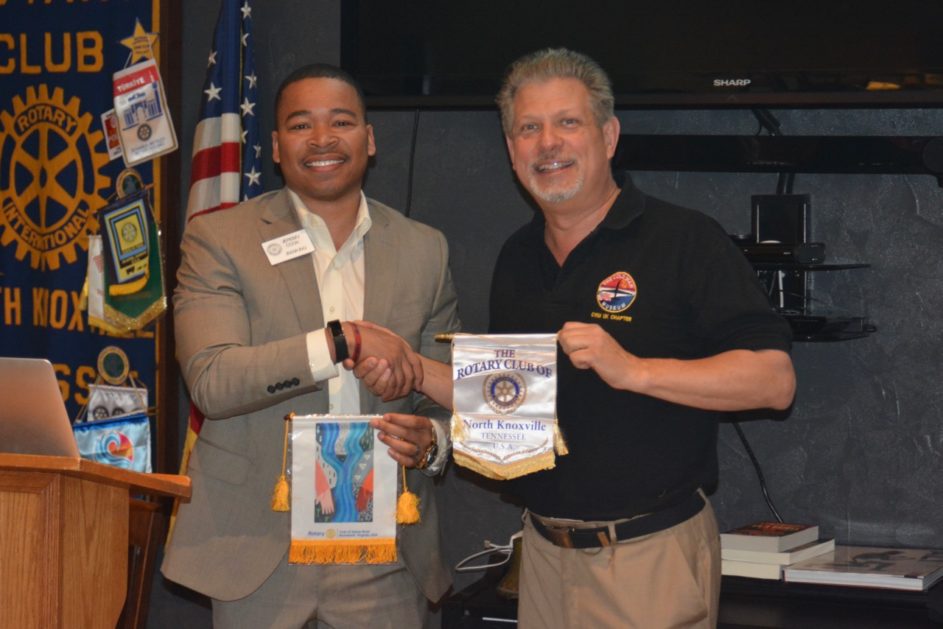Francis Gary Powers Jr. has dedicated his life to preserving the history of the Cold War, a history that is integral to his own family. In the height of the Cold War, Powers’ father and namesake crashed a U-2 in what was then known as the Soviet Union, sparking an international spy incident recounted in Powers Sr.’s memoir “Operation Overflight” and the movie “Bridge of Spies” directed by Steven Spielberg.
Powers Jr. brought his passion for his dad’s story to the North Knoxville Rotary Club last week, giving an account of his father’s time in Soviet custody and the aftermath of his release. Powers Sr. was 21 months in captivity, subject to interrogation and three months of solitary confinement. Meanwhile, the American public and news media speculated as to his intent and whether he was a traitor.
Powers Sr. was freed Feb. 10, 1962, in exchange for Soviet spy Rudolph Abel. Powers Jr. said Abel was welcomed home with a parade, while his father came to America amidst a flurry of mistruths and distrust.
“The Air Force didn’t do anything to squelch the misinformation spreading around,” he said, adding that old news articles calling his father a spy and traitor still find their way into school research papers.
“My father at the time didn’t care what other people thought he should or shouldn’t do given the circumstances,” he said.
Powers Sr. went on to train CIA agents in what to do if they are captured, then went to work for Lockheed as a test pilot, where he worked until 1970 when “Operation Overflight” was published. Powers Jr. speculated that his father was let go because the book “ruffled feathers” in the federal government, and Lockheed was a government contractor. Powers Sr. eventually passed away in a helicopter crash when flying for the Los Angeles NBC affiliate, which Powers Jr. said “was billed as an accident.”
In the early 90s, Powers Jr. found himself lecturing on the Cold War in high schools and was met “with blank stares. They didn’t know about the Cold War. They just didn’t have any idea about this history.”
So, in 1996, he helped found The Cold War Museum in Warrenton, Virginia, exhibiting Cold War artifacts and memorabilia and to honor Cold War veterans. In 2011, the museum got its own brick-and-mortar building. Today, the museum gives spy tours through Washington, D.C., and promotes Cold War education in local schools.
That educational mission is becoming more important as our country continues in what Powers Jr. called “Cold War 2.0,” although he contends that the U.S. and modern-day Russia will probably “fight future wars through surrogate countries.”
“I don’t think there will ever be a Cold War like we knew when we were growing up,” he said. “I think each side likes the tension and the fear. It’s good for the economy.”

